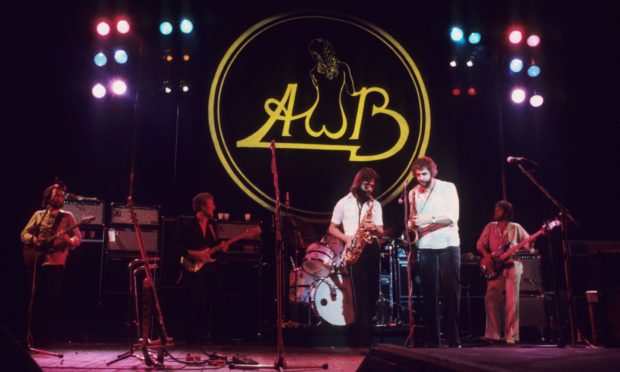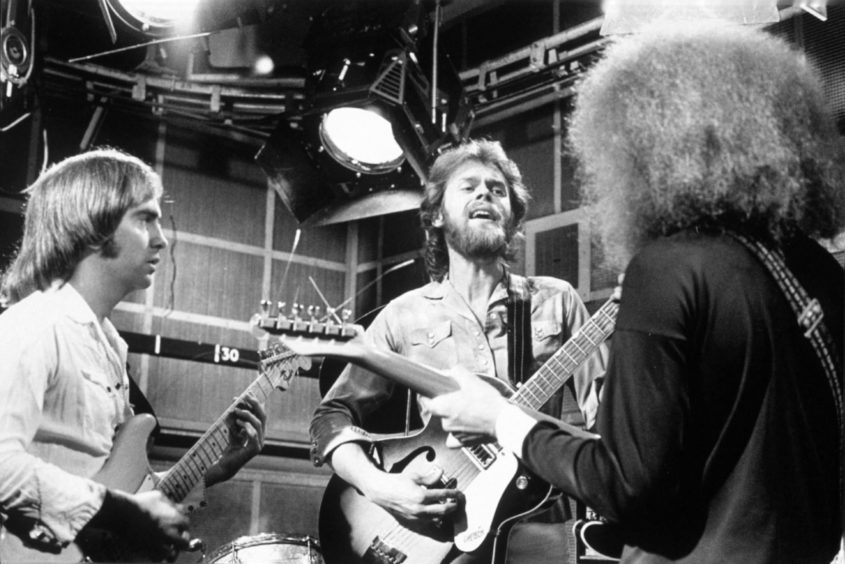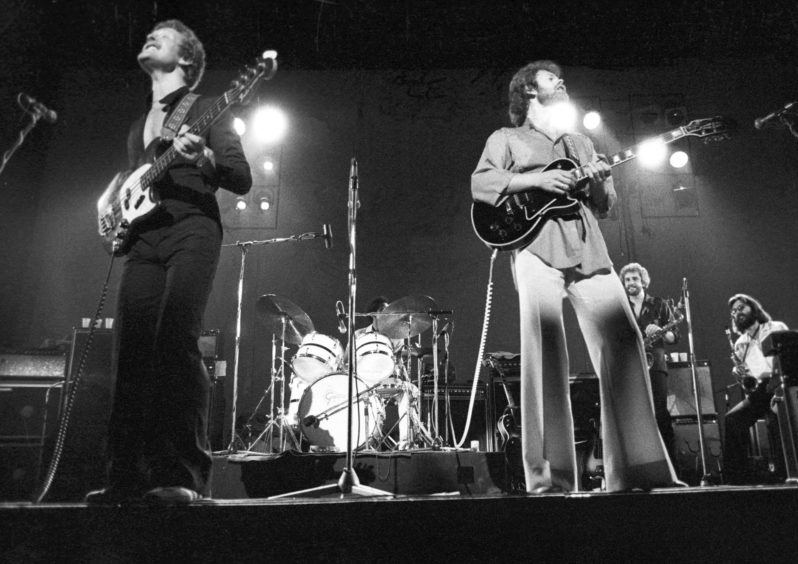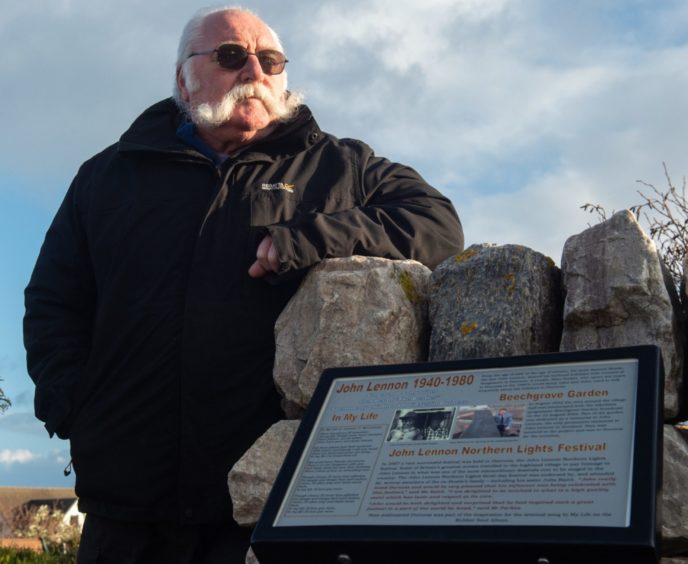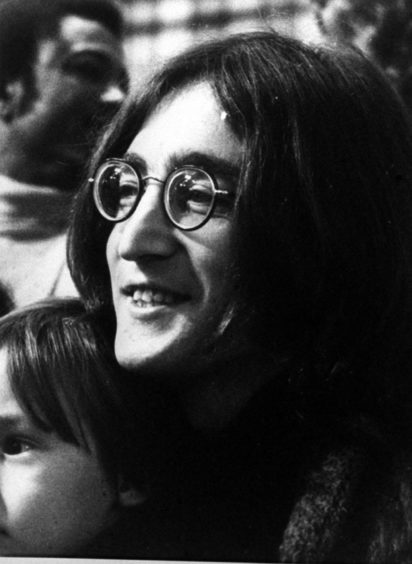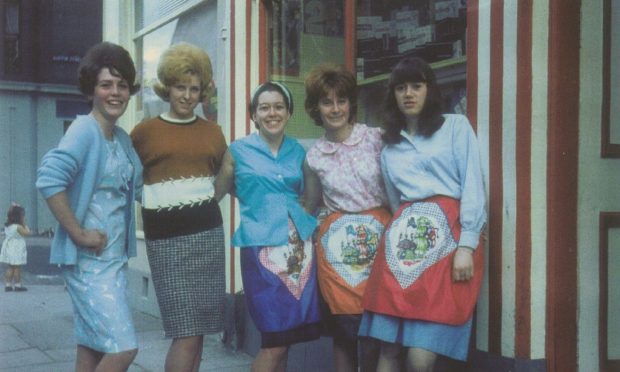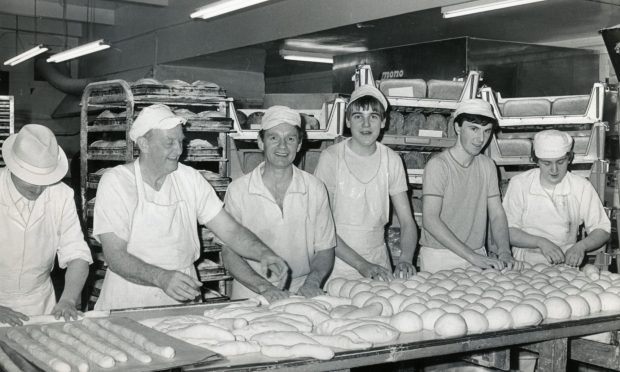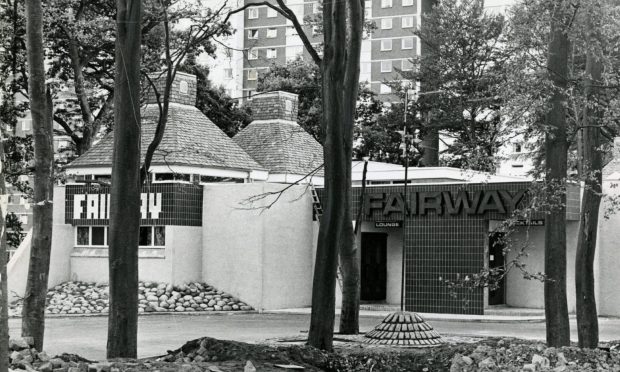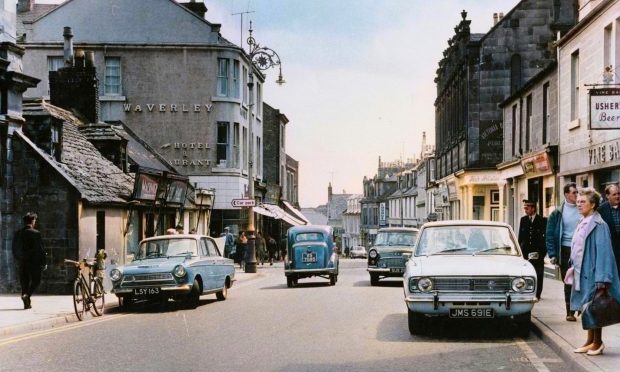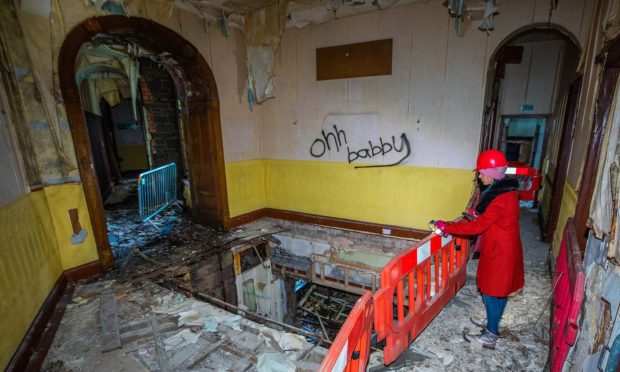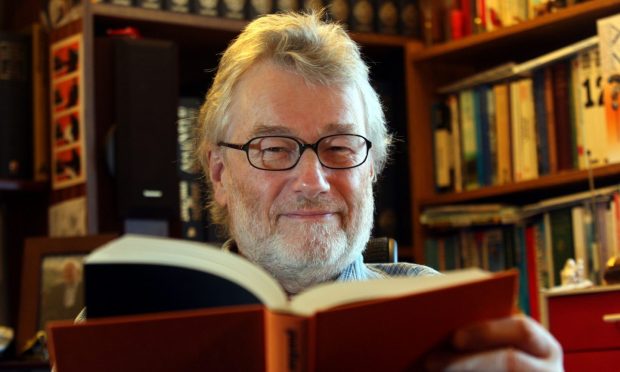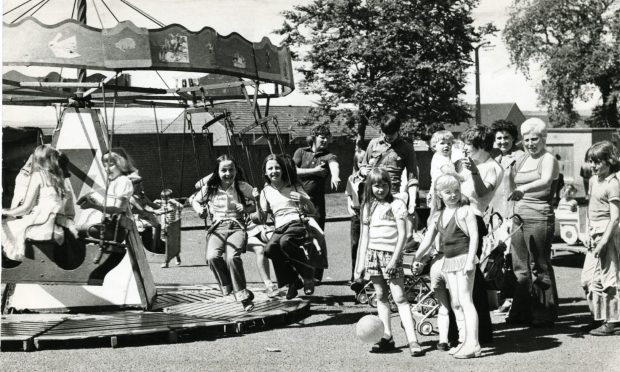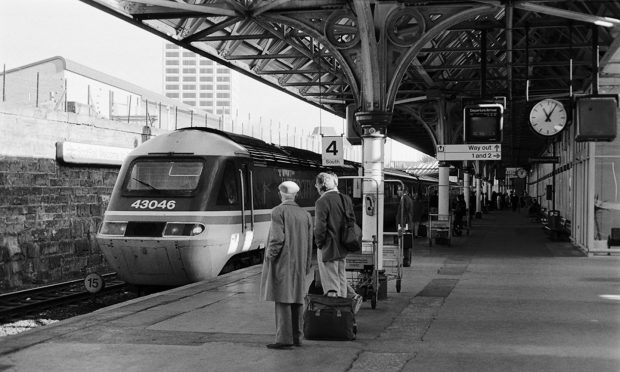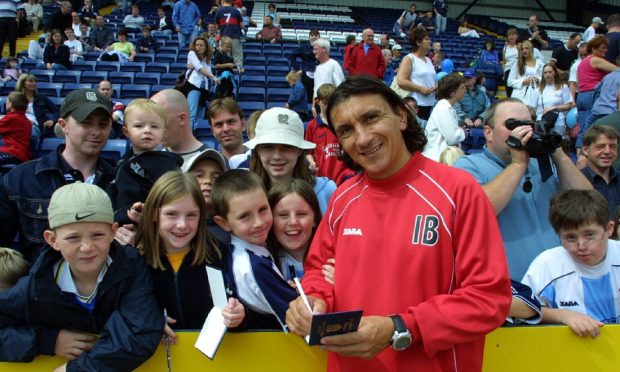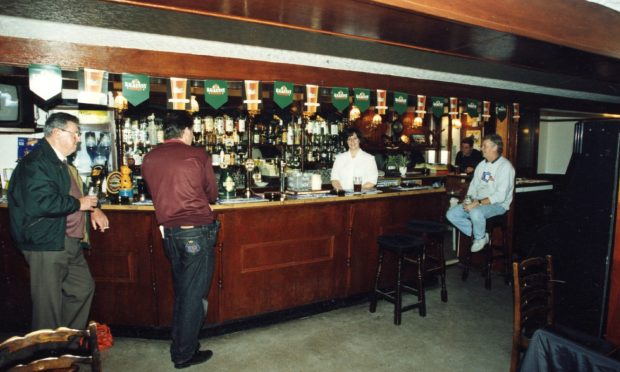Hamish Stuart was in a positive frame of mind when he travelled back to his New York home in early December 40 years ago.
He and his mates had just enjoyed a movie and a catch-up and the Scottish singer and musician with the Average White Band was starting to feel in fine festive fettle.
But then, as he arrived back at his house, the doorman told him: “Have you heard the news? John Lennon has been shot.”
In an instant, Hamish rushed upstairs, switched on the television, and a few minutes later, listened in stunned silence as broadcaster Howard Cosell confirmed the news that the former Beatles star had succumbed to his wounds after being shot by deranged fan Mark David Chapman on December 8.
He recalled: “Everybody was in shock, it was something that we couldn’t take in.
“We had all grown up with John and Paul (McCartney) and the rest of the group and here, suddenly, one of them was dead….it was horrific.”
As the details gradually began to emerge of how Chapman had stalked Lennon for several months and had asked the Liverpudlian to sign a copy of his new album Double Fantasy, it was hardly surprising the music community was left bewildered.
Living on 55th and Broadway
Even now, 40 years later, Glasgow-born Hamish still speaks as if he can hardly believe it happened, or that he was so close to where the killing occurred.
He said: “I was living on 55th and Broadway at the time and had even been to the Roosevelt Hospital (where Lennon was later pronounced dead) after picking up a knee injury while I was playing football in Central Park.
“You could never have expected anything like this would happen at that time – we were making music, we occasionally got asked to sign autographs or have our picture taken with a fan, but that was as far as it went.
Numbness at Possible Twenty
“I can remember meeting up with a few friends the following day.
“There was a bar called Possible Twenty, which a lot of the musicians, who were based in the Midtown area, used as a watering hole.
“I popped in and a few of the guys were there, but we just didn’t know what to say to one another. In a lot of ways, there was nothing to be said.
“Time passed, but we just couldn’t get a word out. Whether or not you were a Beatles fan – and I loved their music – didn’t matter. They changed music for everybody.
“Even now, it all seems so senseless.”
The AWB has been described as arguably Tayside’s greatest-ever musical export and was originally formed in 1972 by Alan Gorrie from Perth, Malcolm ‘Molly’ Duncan from Montrose, along with Onnie McIntyre from Glasgow.
Hamish, Roger Ball and Robbie McIntosh, joined them to complete the original line-up.
Roger and Malcolm were known as the Dundee Horns, an affectionate title relating to their educational studies at the University of Dundee.
Hamish Stuart’s links with The Beatles
Hamish grew up with Beatles songs and he and a teenage friend, Kenny Murray, listened to the albums and fell in love with an eclectic mixture of songs, ranging from Drive My Car and Here There and Everywhere to In My Life and Nowhere Man.
And, while he went on to write some of AWB’s biggest hits, including Pick Up the Pieces, Cut the Cake and Queen of my Soul, the Scot is one of the people who is best equipped to talk about Lennon’s gifts.
After all, he performed and sung with Paul McCartney on the latter’s massive world tours in the late 1980s and early 1990s.
Then, in 2006, he was the bass player with Ringo Starr & His All-Starr Band and joined Starr again for a 2008 tour, where he performed Pick Up The Pieces and Work to Do.
His songs are the opposite of rhyming Moon and June
Hamish is well acquainted with the Beatles’ repertoire and the myriad works created by Lennon after the break-up of the Fab Four in 1970. And he also recognises the influence which Scotland had on both Lennon and McCartney.
He said: “I know that Paul loved travelling north and obviously he had a farmhouse in the Mull of Kintyre which was where he could feel relaxed and get away from all the press attention.
“John was somebody else who spent a lot of time in Scotland in his early years and I have learned about the special memorial garden which has been created (in Durness).
“He was a wonderful songwriter, somebody whose songs were remarkably different from what most other bands were producing in the 1960s. He wasn’t interested in rhyming moon and June, he was trying to be more poetic and he succeeded.
“The Beatles were unique at that time because they had two superstar singers in their ranks. And they recorded every type of music you can imagine.”
The last word on a legend
Beatlemania was a global phenomenon, but Hamish arrived at the party after the hype which was sparked by the initial raw edges of Please Please Me.
Yet, even now, his admiration for John Lennon is evident in the way he talks about the mercurial artist who was only 40 when he died.
He said: “He was one of a kind and he has left behind so many wonderful songs. I listen to something such as Nowhere Man and Help and In My Life and marvel at how profound the lyrics are, given how young he was when he wrote them.
“I still recall Kenny Murray and I listening to A Hard Day’s Night and it changed everything for us. You probably can’t understand how exciting these songs sounded to those of us who were growing up in the 1960s. They changed the face of music forever.
“That is why John Lennon remains such an important figure in music history.”
